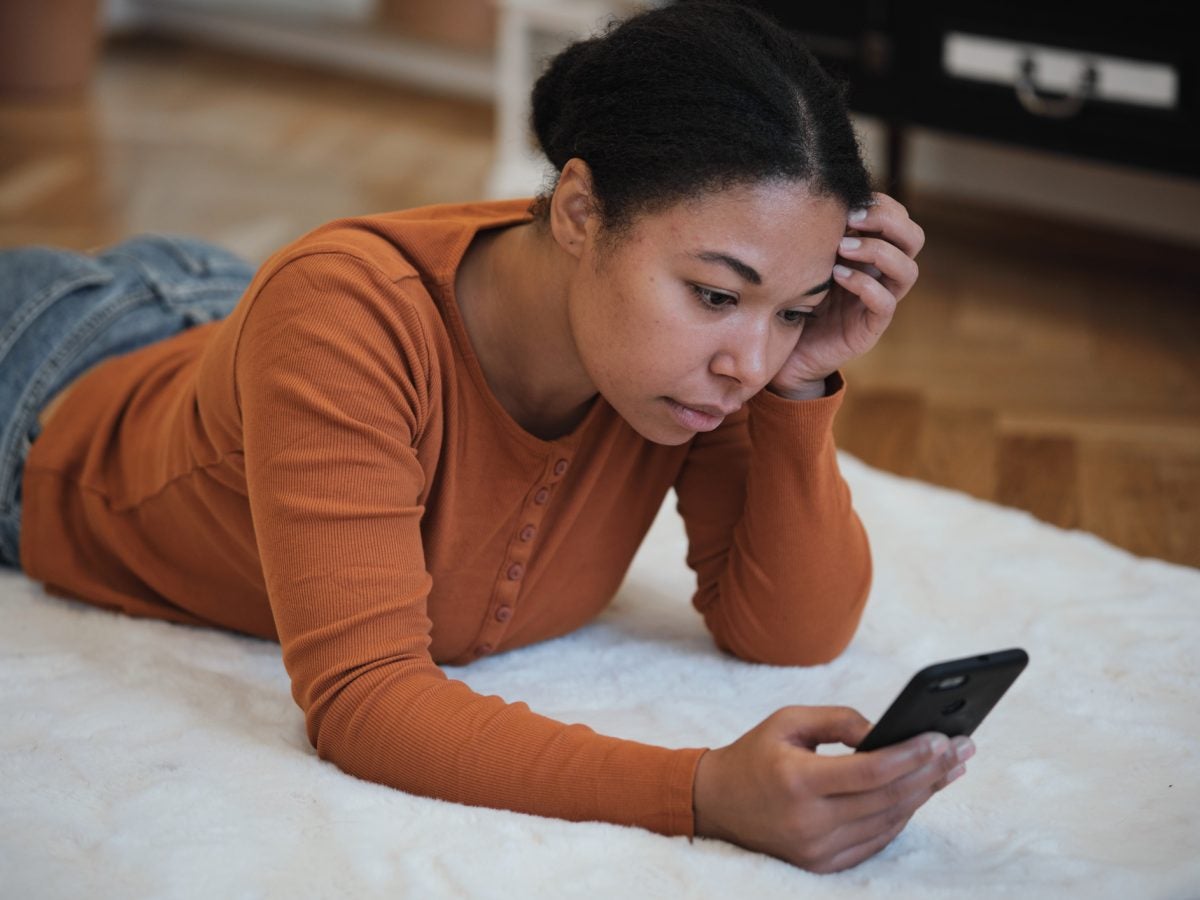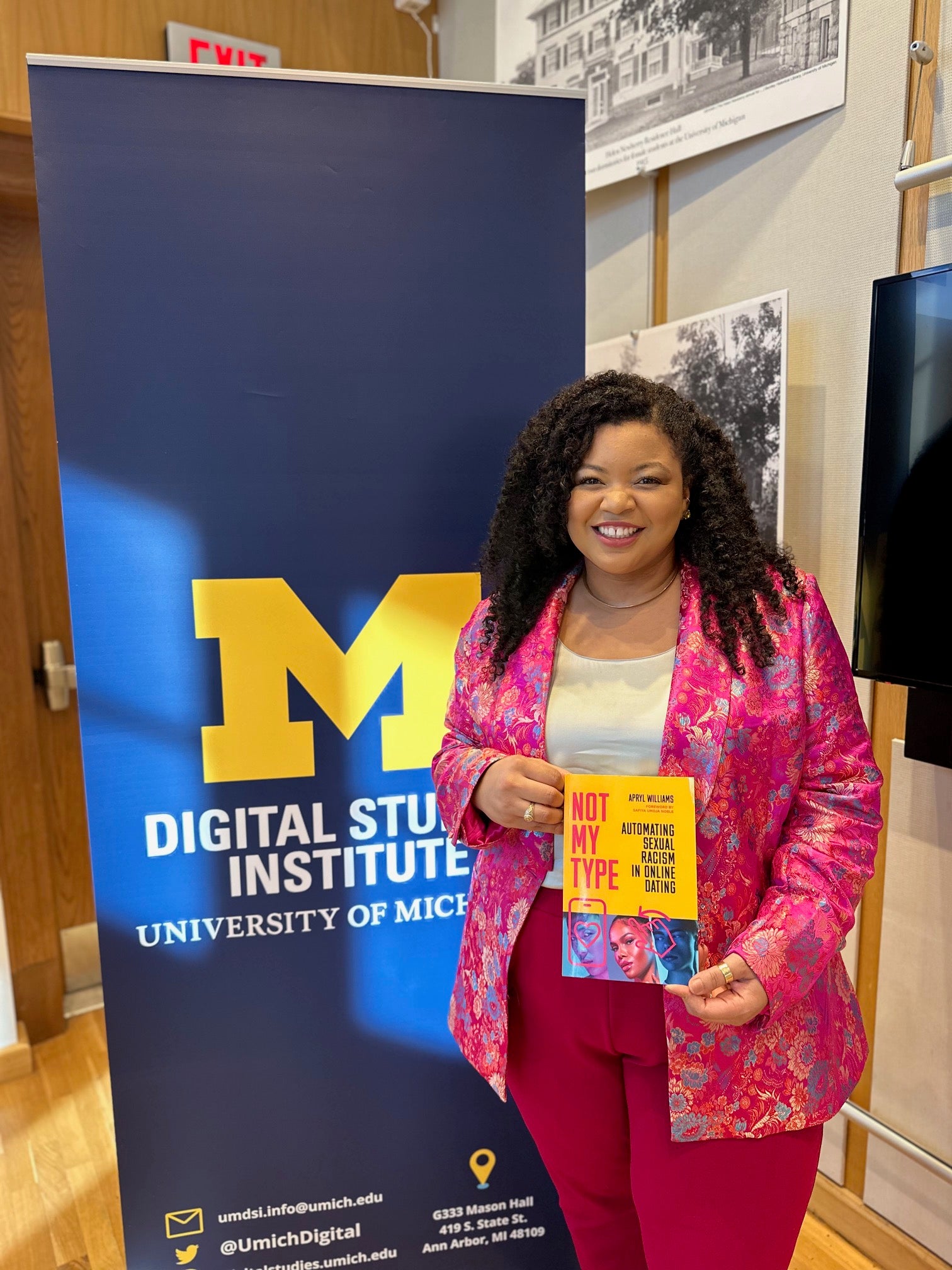
The dating scene can be a tough one to navigate. With the rise of social media and technological advancements, finding “the one” can feel like a daunting and confusing task, especially for Black women. In recent years, there has been an increase in dating apps and their usage for platonic, professional, and romantic relationships. Many options exist, such as Tinder, Hinge, BLK, OKCupid, Bumble, etc. Whichever app you prefer, the use of AI in your potential love story may come with its own challenges.
Artificial Intelligence (AI) is on the rise, and while it has proven to make certain tasks much easier, it has downsides. According to the ACLU, AI is fed by humans, and the data will reflect human-based perspectives that are built on systems that discriminate against minority groups, including the dating space.
One person who has experienced bias is Apryl Williams, PhD, an author and appointed assistant professor in the Department of Communication & Media and the Digital Studies Institute at the University of Michigan. She has had her fair share of encounters with all types of men, and before she found her husband, she noticed certain responses on popular apps were discriminatory against her race. The different interactions led Williams to do some research on the matter.
After interviewing over 100 people, 75% of whom identified as people of color, about their involvement with online dating, she found some interesting trends.
“What we found is that people are not making the same kind of effort to engage with Black women inside dating apps. Black women, in particular, are being fantasized about where they’re being seen as exotic, and [white men] want to have sexual experiences with us only. They don’t want to actually date Black women, and so we are depicted as falling outside of the norm of being a desirable wife or long-term partner,” Williams says.
Due to historical evidence that Black women have long been sexualized, it is no surprise that these ideologies could be found in dating algorithms and perpetuated in how users view potential partners. Because of this, Williams says that many people felt that looking for love on dating apps left them feeling unfulfilled, lonely, and healing from racial trauma.
Based on her findings, she wrote a book called Not My Type: Automating Sexual Racism in Online Dating. In the book, Williams presents a socio-technical exploration of dating platforms’ algorithms, expresses platforms’ lack of transparency, the legal and ethical discourse in company community guidelines, and accounts from individual users who say that sexual racism is a central feature of today’s online dating culture.

The sociologist also argues that the algorithms specifically curate users to match with people who look like them, which can, for example, hinder Black women from connecting with others more authentically. Additionally, the limits being placed on exposure to others with different cultural backgrounds increases the assumption that Black women’s level of “attractiveness” is skewed compared to white women. Williams states in her book that this idea stems from superficial thinking and an outdated viewpoint that is against interracial dating. It also shows that inclusivity is not practiced within the dating system, and platforms should be held accountable.
She notes in her book that during a panel explaining the mechanics of one of the most popular apps’ matching and sorting algorithm, its founder joked, “If you think your matches are ugly, it’s probably because you’re ugly.” The CEO continued to elaborate that matches reflect a mathematically generated score that combines several factors, such as attractiveness scores, how often users send and respond to messages, and how much traffic a particular person generates on the app.
The standards of “beauty” have always been Eurocentric focused worldwide. So, with AI tools, questioning if you are attractive is another risk of using these apps that Black women need to consider. “If you’re on the apps and you’re seeing people that you think don’t look like people you’re interested in, to say that you’re not attractive is a skewed vision of beauty, and for me, I don’t want Black women, who I know were having hard times with these dating apps, thinking ‘Oh, I’m only getting shown to these guys that are in my league.’ Just because the computer has this one vision of you does not mean that that’s who you are,” Williams states.
A study by Nimble gathered that 31% of dating app users identify as Black. However, over 2.4 million heterosexual interactions on the Are You Interested app suggest that there are racial biases in online dating. Black men and women receive fewer “I’m interested” ratings than other races.
While the apps may have algorithms that do not favor women of color, Black women should not give up hope. Dating apps are just tools, and Williams says we should continue to use all resources cautiously and have the proper support while navigating them.
“Black women should stay true to themselves on the apps. I have read articles where Black women were changing their hairstyles to see whether they would get more or less matches. I think that’s fine if you like to play a lot with your hair but do that for yourself. Don’t do that because you’re catering to somebody. You want to attract people who like you and all of you fully. The right kind of people will respond and appreciate you being yourself,” she says.
Williams adds, “A good group of friends or a community of people who love you can remind you of who you really are. Because using these apps will make you think you’re not worthy or you’re not enough, and that’s just not the case. Dating will always be a game. You’ll have to sort through a lot of trash before you find your person. Community can help you stay grounded and remind you that you’re just sorting through until you find what you’re looking for.”